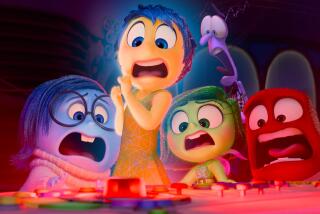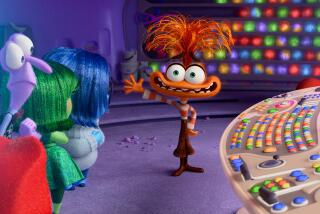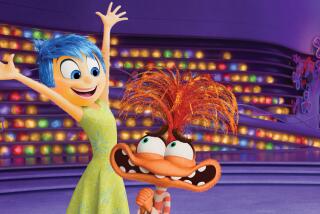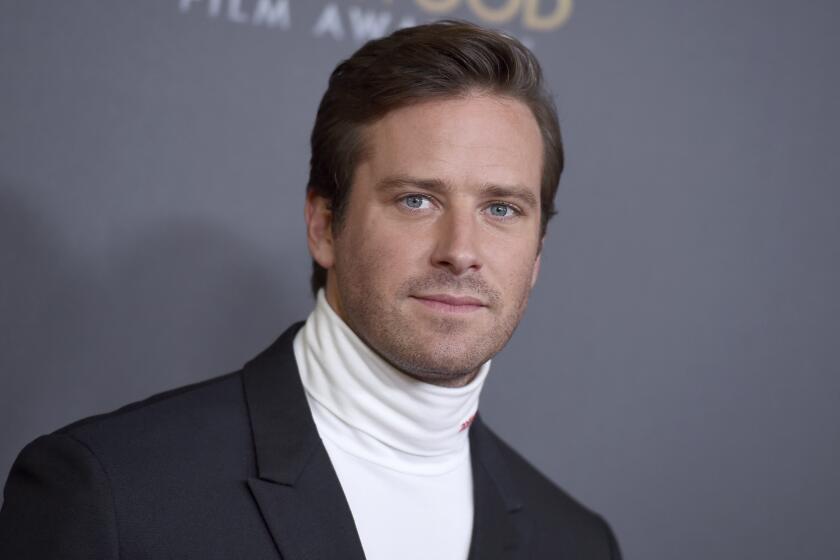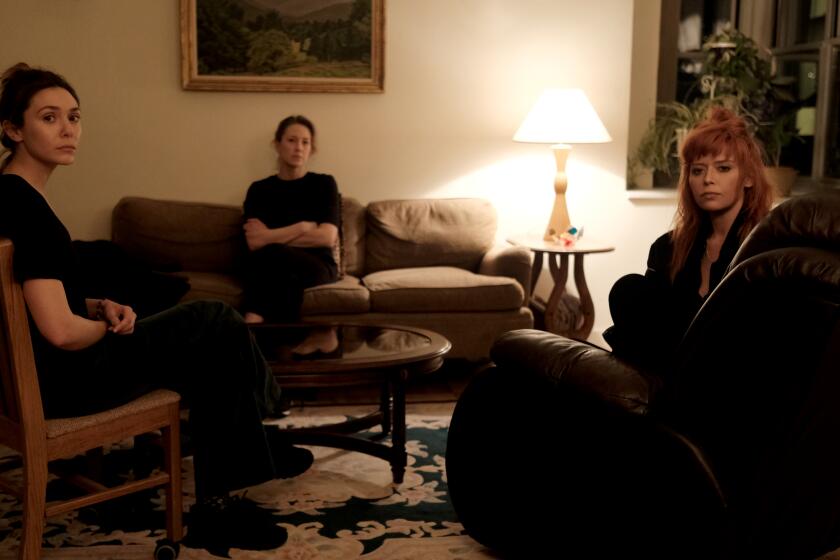‘Inside Out’ composer Michael Giacchino is on a roll
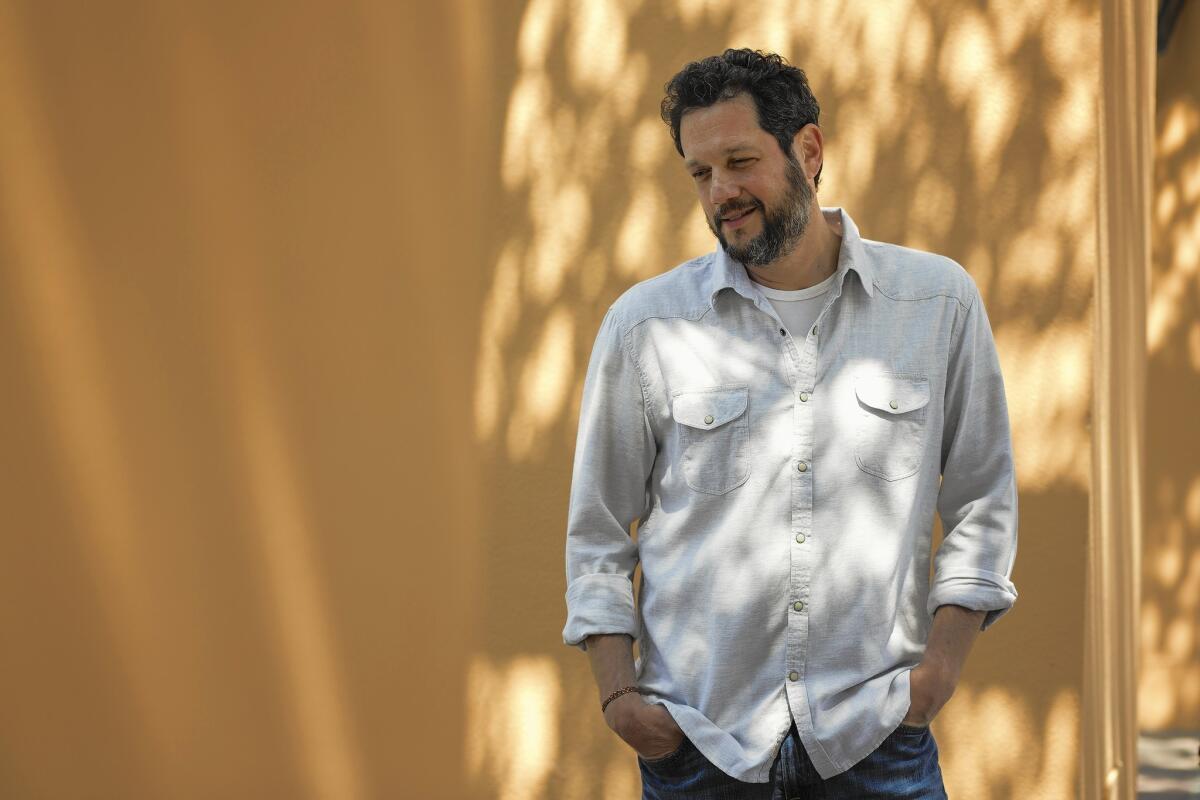
It’s been quite a summer for Michael Giacchino. The award-winning composer worked on the scores for three big films: Disney/Pixar’s animated “Inside Out,” the blockbuster “Jurassic World” and the action-adventure “Tomorrowland.”
The 47-year-old New Jersey native won an Oscar for his emotionally resonant score of the 2009 Disney/Pixar film “Up,” and his John Barry-esque jazz stylings for the studio’s 2004 hit “The Incredibles” earned rave reviews.
Among his many other notable scores are 2007’s animated “Ratatouille,” 2011’s “Mission: Impossible — Ghost Protocol” and 2014’s “Dawn of the Planet of the Apes.” He’s done notable work for TV too, including the J.J. Abrams series “Alias” and “Lost.” Abrams then used Giacchino scores for both his “Star Trek” movies.
INDIE FOCUS: Sign up for our weekly movies newsletter
Giacchino, whose Twitter bio describes him as a “nerd composer who sometimes composes for nerds,” recently chatted about his career at the Disney lot in Burbank.
You work a lot with the same directors, such as J.J. Abrams, Pete Docter (“Inside Out,” “Up”) and Brad Bird (“The Incredibles,” “Tomorrowland”). What’s the connection?
They are making the kind of movies I would have wanted to see growing up. I know these guys very well. We are very good friends. So even beyond making movies together, we hang out together. We go on vacation together, our kids know each other.
So how do you compose a film score? Do you read the scripts first to get an idea of the film?
I try not to read the script if I can because having grown up making movies, when I read a script I just sort of envision my own version [of the story].
One of the first things I ask [a filmmaker] is, “What is the saddest moment in the story to you?” That is important for me. I want to know if I felt the same way. When I ask the question, I’ll know emotionally if we are going to be in the same place.
Do you see dailies then or just wait until the film is completed?
It’s a mix of both. I love filmmaking, and I will go to the set and watch them film. I love talking to animators. The first thing I wanted to be as a kid was an animator. The important thing is to watch the movie from end to end.
I find the tempo that the editor has set. A good editor is always finding a rhythm to cut to. The first thing I do is sit and watch the scene and tap out on my leg what I feel is the rhythm. I think about all the hits that I have to do [musically in a scene]. I write down “I want this here and this here and this here” and what tempo.
So you start to write immediately?
I’ll go home and sitdown and I’ll write a piece of music that sort of reflects how I felt about the movie. On “Jurassic World,” thatended up being an 18-minute suite that I wrote. I said, “This is how your movie made me feel.” I did that for “Up.” I did that for “Inside Out.” I did it for “Tomorrowland.” It’s a great way for the director to sit and listen and feel that we are in the same head space.
What did you get out of watching and listening to film and TV as a kid?
I feel like I learned so much about music and drama from watching and listening to TV growing up. They used live musicians, and they recorded [scores] every week for all kinds of shows, even the Hanna-Barbera stuff, which I loved, like “The Flintstones.” I feel so lucky because kids growing up today watching cartoons [on TV], there is hardly any live music. It’s synthesizers and things like that. It is not the fault of the composers. It’s sort of the way the business is going. There was a subversive way to learn about art in the way television and films were produced when we were growing up.
When did you start composing?
When I was in high school, I started writing music. I grew up taking piano lessons. I hated taking piano lessons because I hated practicing scales. What I did love was sitting down at the piano when no one told me to and just mess around. I remember one day going to my piano teacher when I was still in high school and saying, “Explain to me what is happening underneath the melody that makes me feel something.” He said, “Like chord progressions?” I said, “What’s that?” He showed me, and this whole explosion just sort of happened in my head.
That taught me so much about the emotional undercurrent of what is happening in storytelling. I remember starting to watch movies in a completely different way. I can hear the story, I don’t need to hear the words. I can feel it.
Was John Williams’ “Star Wars” score the one that really influenced you?
Before “Star Wars” came out my obsession was “Planet of the Apes.” I used to want to be an ape.
What is that like when you do provide new scores for reboots of films like “Star Trek” and “Mission: Impossible” and “Jurassic Park” that had iconic scores? I know you met with “Mission: Impossible” composer Lalo Schifrin before you began work on the new one.
For “Mission: Impossible,” that was the first time I was handed something that I loved and was being asked to do something with it. Asking to meet Lalo was probably the best thing I could have done because all he said to me was have fun with it. So I did. I went and had a blast with it.
Was the same true with Williams’ score for “Jurassic World?
What’s important for me is to not just take this incredible stuff that was done before and just stamp it out. I want to build on it and create something new with it but without disrespecting it. The challenge for us was to say, “We love John’s theme, where do we want to put it? Where is its biggest impact?” It felt like the right place to do it was when you first see the park. Youdon’t want to lose an original film’s identity.
Are you working on a new score?
Right now, I’m cleaning my garage.
More to Read
Only good movies
Get the Indie Focus newsletter, Mark Olsen's weekly guide to the world of cinema.
You may occasionally receive promotional content from the Los Angeles Times.
